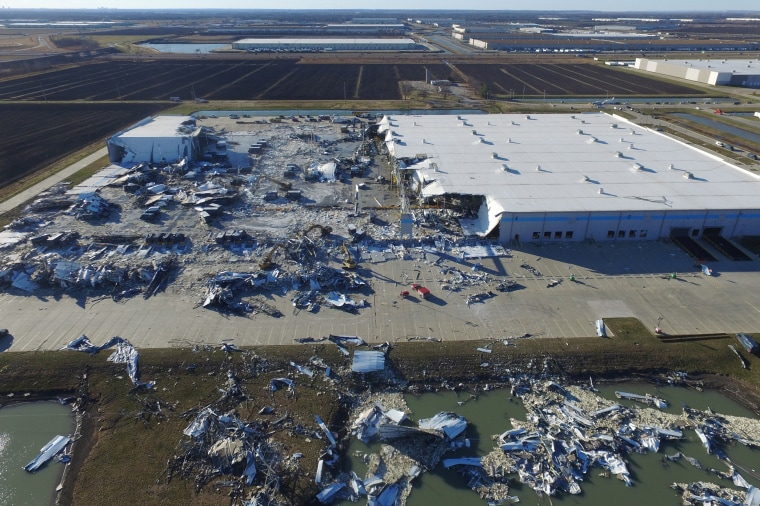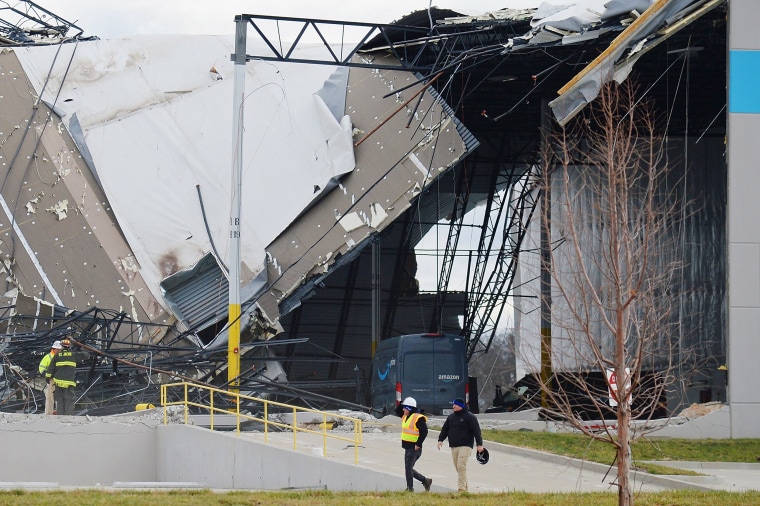Just north of Aidarken, a town in Kyrgyzstan, smokestacks tower over hillsides streaked with red. Deep underground, men wearing headlamps toil away in the dusty dark, breaking rocks with sledgehammers. They are mining cinnabar ore, the mineral processed into mercury — a gleaming, silver-colored metal with dangerous properties.
The Aidarken mine is one of the on Earth where new mercury is legally extracted for the international market. Since 2013, 135 nations have signed the Minamata Convention, a global agreement that bans new mercury production and aims to phase out most international trade in the metal.
But Kyrgyzstan, which sees mining as a cornerstone of its economy, isn't one of them. The country is now ramping up mercury production, even as researchers warn the metal poses a health risk not just to people living near the mines, but around the world.
"I believe that mercury pollution of the environment is not only our problem," said Makhmud Isirayilov, the head of a nearby laboratory run by the Health Ministry. "This is a global problem."

Kyrgyzstan has not signed the Minamata Convention, a global agreement banning new mercury production
A lucrative international market
Mercury mining in Aidarken, a town of roughly 10,000 people, began in 1941 when Kyrgyzstan was part of the Soviet Union and scrambling to find new sources of metal. After the Soviet Union's collapse, the plant remained a state-owned venture, producing mercury for export to China, Russia, Kazakhstan, Ukraine, India, France and the United States.
Though the market has shrunk since the establishment of the Minamata Convention, mercury is still a $38-million (€32-million) industry worldwide and a significant driver of the regional economy in Kyrgyzstan's impoverished Batken province, where per capita production is about 2.5 times lower than the national average.
The metal is used in manufacturing certain types of lamps, electrical equipment and batteries and is also a major component in artisanal and small-scale gold mining, mainly in South America and sub-Saharan Africa.
A 2015 global inventory found these activities emitted about 2,500 metric tons of mercury into the atmosphere annually. Illegal mercury mining is also a thriving black market, even in countries that have signed onto the Minamata Convention, and is particularly destructive in the Amazon.

Mercury is used in manufacturing certain types of lamps, electrical equipment and batteries
Far-reaching health impacts
Mercury can damage the nervous, digestive and immune systems, and is especially dangerous to children. Artisanal gold miners are exposed to mercury vapors, and runoff can accumulate in food chains, endangering people who eat fish or livestock poisoned with it. Once mercury enters the global supply chain, it can travel far from its source, contaminating the soil as far away as the Arctic.
In Aidarken, a 2013 sampling conducted by the Health Ministry found that springs around tailing dumps from the mine had concentrations of mercury that were 400 times the allowable limit. In Eshme, a nearby village where residents used mine water to irrigate their vegetables, mercury levels in fresh potatoes were double the maximum recommended dose.

The mercury plant known locally as a 'kombinat,' is perched on the hills overlooking the town of in Aidarken
Mercury vapor is also emitted into the air during the refining process. Although the government installed filters in Aidarken to capture the emissions in 1990, Isirayilov said some pollution still gets through. The exact amount, though, is unclear, said Oleg Pecheniuk, an environmental researcher and chairman of Kyrgyz NGO Independent Ecological Expertise.
"We have a fairly large number of sites contaminated with mercury, whether natural or man-made," Pecheniuk said. "Systemic monitoring is needed so that we can clearly understand the scope of work required."
Stalled political action
International attempts to remedy the problem have run into opposition. In 2013, a UN-led project set out to remediate mercury-contaminated areas around Aidarken, collect health data and help transition the economy away from mercury mining.
But after its conclusion in 2017, the UN's own assessment found that the project was "highly unlikely" to have had an impact on mercury contamination or exposure, highlighting mine officials' refusal to cooperate and a lack of government consensus over ending production. The mine's management declined an interview request.

Research has found waste from the mine is polluting the environment, posing health risks to local communities
The movement for Kyrgyzstan to join the Minamata Convention has stalled after initial pressure from lawmakers, environmental activists and international organizations.
In 2019, Rada Tumanbaeva, a member of parliament, announced that a draft law approving the country's accession to the international compact was imminent, but no proposal was ever put forward. That year, workers at the plant went on strike to protest the move to join the convention, fearing they would lose their jobs. Since then, the government has been largely silent on the issue.
Increased mercury production
Meanwhile, mercury production appears to be making a comeback. In recent years, the plant has built up significant debt due to falling demand and aging equipment. After multiple mine shafts flooded in 2009, production slowed to a trickle.

Mercury is used in small-scale gold mining, mainly in South America and sub-Saharan Africa
But in 2018 production resumed and in August this year, the government announced it had reached an agreement with Duvatash LLC. The Turkish investor will acquire a share in the venture, funding new equipment, increasing production and creating 1,000 new jobs.
As Kyrgyzstan doubles down on mercury, global opposition to mining is gaining steam. Indigenous people have called for an end to copper mining in the Amazon, while protests erupted in Serbia in September over plans to open a lithium mine. In Kyrgyzstan, activists succeeded in getting a ban on new uranium mining passed in 2019.
That shift in sentiment could still reach Aidarken as more locals recognize the dangers that mercury poses.
Isirayilov, from the Health Ministry, said dozens of people from Aidarken — mainly metallurgical plant workers — had to be treated for mercury poisoning in the 1980s, after experiencing trembling hands and tooth loss. Though he has not seen such issues recently, he found elevated levels of mercury in a broad cross section of workers at the mine and plant in a 2015 study of more than 200 people.
Saidullah Shektybaev, 69, worked as a miner in Aidarken for 28 years. He recalled a colleague who got mercury poisoning and said the benefits of the mine were not worth the risks.
"They could build a cement plant here instead, or another factory," Shektybaev said. "It doesn't have to be mercury."
Edited by: Holly Young
















